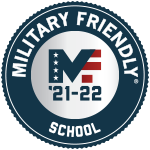3136 Dickens Avenue, Manhattan, Kansas 66503
Phone: 785.587.2800
Fax: 785.587.2804
Copyright © 2024 Manhattan Area Technical College • Privacy Policy • Design: New Boston Creative Group, LLC
Manhattan Area Technical College is an open institution and does not discriminate. For Manhattan Tech’s non-discrimination policy and a full list of regulatory specific contact persons visit the following web page: https://manhattantech.edu/hr



